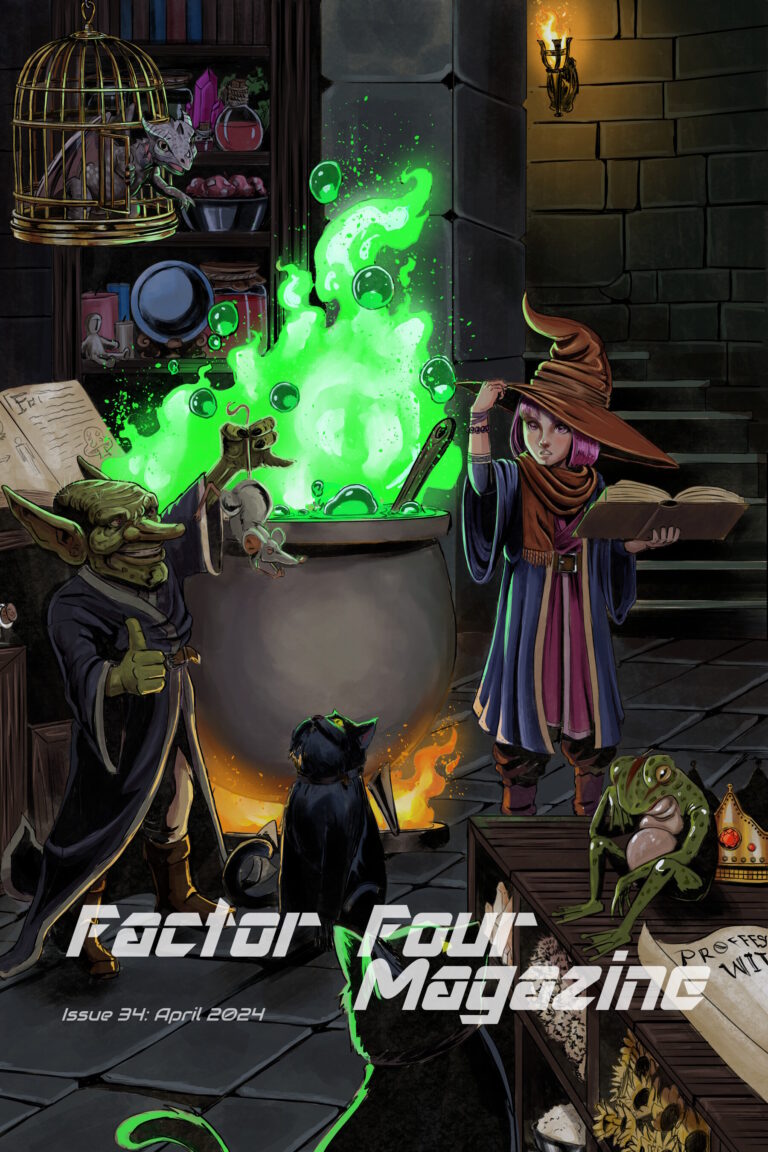Living Space by David K. Henrickson

A man stood on the street corner, preaching about the end of the world. Most people ignored him. Some because they couldn’t hear him, others because they’d heard it all before. To me, it sounded more like wishful thinking than anything else.
I was in too much of a hurry to listen. I needed to get across town as quickly as possible and rush hour traffic wasn’t going to make that easy. The roads were clogged with cars and taxis. Some hitchhikers lay on top of their vehicles or sat with their legs dangling over the side, content to take their time. Everyone else walked between the rows of machines in a steady stream, unwilling to wait for the congestion to clear. As for the subways, they were a nightmare at any hour. I would have to be truly desperate to risk that flood of humanity.
The bus seemed to be my best option. I headed toward the nearest stop. When a bus finally arrived, the interior was packed shoulder-to-shoulder and there were a number of riders already on top. A couple of them leaned down to give me a hand. I clambered up to join them.
Even the buses were hardly moving. Unless I was lucky enough to snag a cop car or a fire truck plowing through the crush, though, it was the best I was going to do. I stay away from ambulances and EMT vans. Some people got a vicarious thrill from that kind of thing, but I didn’t need the angst. Besides, people deserved their privacy at such moments.
It took forever to get across town. I had to switch buses twice more, riding on top each time.
Finally, I made it. The address I’d been given was in a nice neighborhood, with quiet, tree-shaded sidewalks and well-maintained brownstones. There were vagrants everywhere, of course, but that was the city for you. The population of Manhattan had to be 40 or 50 million by now. Other places were just as bad. There simply wasn’t enough room.
The landlady was waiting for me in the lobby.
“Are you Mr. Ashby’s friend?” she asked.
“That’s right,” I said. “Sorry I’m late. Traffic.”
She just nodded. Pete (i.e. Mr. Ashby) had told me she did a good job at keeping vagrants from sneaking into the building when no one was around and squatting in the apartments.
She led the way toward the stairs. “I hope you don’t mind a climb,” she said. “It’s on the third floor.”
“No, that’s fine,” I replied. I really didn’t. Anyway, I’d rather walk up a few stairs than wait thirty minutes for an elevator to show up.
I knew some people, particularly the older set, preferred to hang out on a rooftop or even in the country rather than shack up with roommates. Not me. I liked my creature comforts, even if it meant dealing with strangers.
As advertised, it was a two-bedroom apartment, the second bedroom having been set up as a den. Which meant no spare bedroom to call my own. Oh, well. At least the place was reasonably clean, which was a relief. I hated living with slobs.
“The current tenants aren’t here right now.”
“At work?”
“Normally. She’s between jobs at the moment.”
It would have been nice if they had both been employed, but you couldn’t have everything. “Kids?”
“No,” she replied. “They don’t seem like the parenting type. Maybe in a few years.”
Well, that was something. I liked kids well enough. At my age, though, a little chaos went a long way.
“What kind of people are they?”
“Nice enough. They don’t do a lot of entertaining.”
Also good.
I noticed the big flat-screen TV. They had come along well after my time. I remembered watching the first moon landing on an old black-and-white TV. We hadn’t even had remotes in those days.
I didn’t see any DVDs lying around. But then, DVDs were pretty much a thing of the past, too. I wished things would stop changing.
“What do they watch?”
“She’s into reality TV, also some daytime talk shows since she’s been unemployed. He watches sports, mainly football and basketball.”
God. Reality TV, talk shows, and sports? And everyone said there wasn’t a hell.
She saw the expression on my face. “He generally spends a few hours every night on his computer, playing games and watching porn. She goes out a couple of times a week with girlfriends. It could be worse.”
I supposed.
“Why is Mr. Ashby leaving?” she asked. “He didn’t say.”
“His daughter finally died. She wants to remain close to her family, and he wants to spend time with her. They live in California.”
She nodded understandingly. Pete had talked about his daughter a lot, but hadn’t wanted to leave the city until she passed away. Finally, they could catch up.
Picking up stakes wasn’t easy for the dead. The older you got, the more connections you made. I had friends in the city I’d known for decades, some even before my death. It made relocating elsewhere difficult.
“So, what do you think?” she asked.
I looked around at the small living room. It was better than where I was living now, but that wasn’t saying much. “I don’t suppose I can think about it?”
She shrugged. “It will go fast,” she said. “And I can’t hold it. You know the rules—first come, first serve.”
I knew she was right. People kept dying and spirits kept piling up. Just once, though, I would like to room with someone who liked edgy TV dramas and cool jazz.
Oh well, beggars couldn’t be choosers. Neither could the dead.
I sighed. It wouldn’t hurt to give this place a try. It wasn’t like it was permanent.
Nothing was, except the human spirit.
“I’ll take it,” I said.






